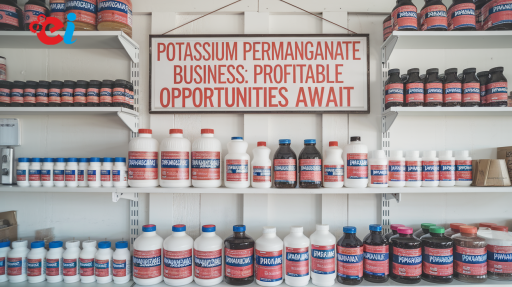The chemical manufacturing industry is essential to the global economy as it supplies necessary products to both the agricultural and healthcare sectors. Despite increasing consumer concern over environmental issues and the embodiment of sustainability in all sectors, the industry now faced by it. The ongoing transformation of an industry undergoing change is bringing sustainable chemical manufacturing practices at the cutting edge of innovation with several companies seeking methods of reducing their environmental footprint while being productive and profitable. Innovative sustainable practices have led the revolution of the chemical industry by reducing environmental degradation in profitability.
Related Books: Business books on several industries
What are Sustainable Chemical Manufacturing Practices?
Sustainable chemical manufacturing practices refer to those methods that minimize the environmental impacts during chemical production. This involves minimizing the wastes during production; reduced energy consumption; and the incorporation of renewable resources into the process to make it more eco-friendly and sustains the economic goals alongside environmental protection.
Those would include green chemistry principles, recycling of waste materials, applying energy-efficient technologies, and minimizing hazardous chemicals. Thus, the industry can help in minimizing the carbon footprint and work along with global efforts toward sustainability.
Related Business Plans: Business plans on different manufacturing Industries
The Shift Towards Sustainable Chemical Manufacturing Practices
Sustainable chemical manufacturing practices have surged into the industry in the last couple of years. This was mainly as a result of various driving forces such as increasing regulatory pressure on the producers, market pressure or consumer pressure for greener products, and reduced operational costs. As a result, industries are putting into their efforts through much research and development over new innovations that will offer sustainability to their processes at low costs.
The raw material production adopts sustainable practices, one of the important sectors on it. The conventional chemical fabrication has high dependencies on the non-renewable resources that further have severe environmental effects. The above-stated sustainable chemicals manufacturing practices meant a renewable feedstock and bio-based materials use. Both aspects will positively impact the environment and create a better opportunity for bio-based chemicals and materials markets.
Related article: Profitable Chemical Business Ideas
Key Strategies for Adopting Sustainable Chemical Manufacturing Practices
- Green Chemistry: Green chemistry involves the design of chemical products and processes that can substantially reduce or eliminate the use of hazardous substances. By following the precepts of green chemistry, chemical manufacturers can dramatically reduce pollution and waste, making their processes sustainable to a large extent.
- Energy Efficiency: The chemical manufacturing process is one of the most energy-intensive industries, but companies are busy investing in energy-efficient technologies nowadays. This often includes reaction condition optimization, heat integration improvement, and renewable energy sources like solar and wind power. These manufacturers will then be able to improve energy efficiency and operational costs while reducing their carbon footprint.
- Waste Reduction and Recycling: Waste management is yet another critical area where sustainable chemical manufacturing practices have been made. Manufacturers reduce waste generation and recycle by-products generated from processes. One example is the closed-loop system where waste material is reused during operation instead of the search for more raw materials and reductions of waste-to-landfill amounts.
- Water Preservation: Water is important for chemical production and reducing water consumption is becoming the motto in many chemical companies. Examples are the efficient usage of water and its recycling processes and installation of water treatment systems and water-efficient technologies. These interventions have thus enabled manufacturers to reduce their water consumption and the negative environmental impacts of their operations.
- Circular Economy: This theory is getting traction in the chemical manufacturing industry. A Circular Economy is based on the reuse of materials, product recycling, and resource saving in the closed loop of manufacture. In this way, the chemical furnaces will eventually reduce their material dependency on virgin resources very significantly and also reduce the waste they produce.
Project Reports: Manufacturing Business Project Reports
Challenges in Implementing Sustainable Chemical Manufacturing Practices
There is promise in this movement towards sustainable chemical manufacturing practices, but it also brings some challenges. The primary obstacle in the path is the investment usually massive capital outlay required for technology and process investment.As they generally require new machinery, there comes the cost of research and development and expenses that are often beyond the reach of companies, particularly small and medium enterprises.
One more issue in this trend is that greening is generally accompanied by many complex changes in process technology. Most have been optimized for decades, requiring substantial changes to production techniques for introducing new elements, retraining employees, and resupplying.
Scarcity of renewable resources and bio-materials challenges sustainable production practices. Economic growth increases demand, hence the dynamics of sustainable materials in the supply chain evolve.
For any Business related Query: Visit NPCS
Benefits of Adopting Sustainable Chemical Manufacturing Practices
Sustainable chemical manufacturing practices have proven all difficulties to be actual benefits. First and foremost, sustainable chemical manufacturing practices reduce environmental impact by chemical production. Renewable resources, waste minimization, and energy reduction enable manufacturers to lessen their carbon footprint, thus contributing to global sustainability goals.
Sustainable practices often save even more money in the long run. All these areas-better energy efficiency, waste reduction, and recycling-can lead to lower operational costs, which improve profitability. It is also possible to attract environmentally conscious consumers and investors, and hence garner competitive advantage as a market leader.
Such practices would be a prerequisite for innovation in the industry. The focus on green chemistry, energy efficiency, and waste reduction drives the manufacture of chemicals towards unprecedented bounds of possibility. This engenders a culture of innovation that can produce new products, processes, and business models.
For Business related Videos: Visit Entrepreneur India
Conclusion
Sustainable practices have always been the future imperative, not something that might come and go. Organizations would be forced to reduce environmental impact for longevity so much so that companies will have to adopt such measures for carrying on with their business. Green chemistry indeed improves efficiency, reduces amount of waste, and boosts profitability.
Most likely, it is clear that the future shape of chemical chemistry has dominantly sustainable chemical manufacturing practices. This justifies the justification of the future. Investment in research, technology and processes coupled with industry will lead to a sustainable future for society.






